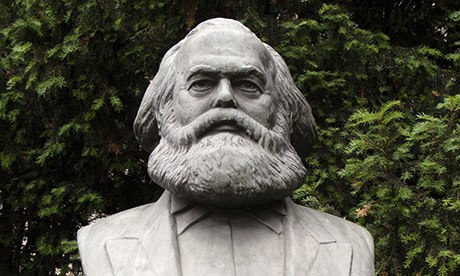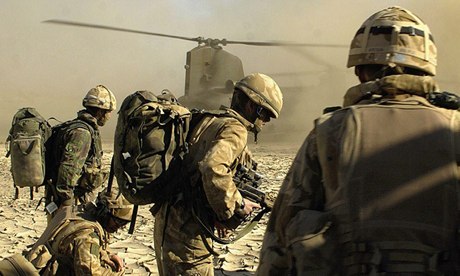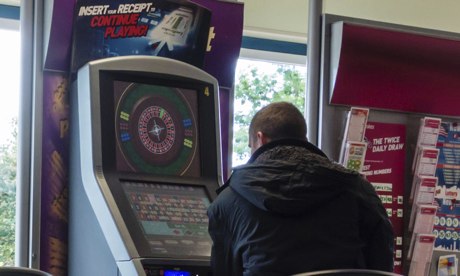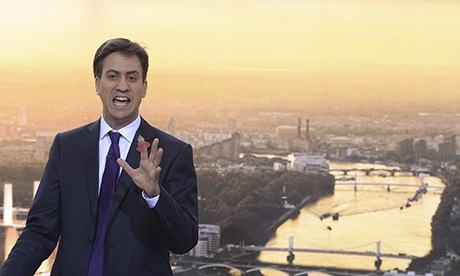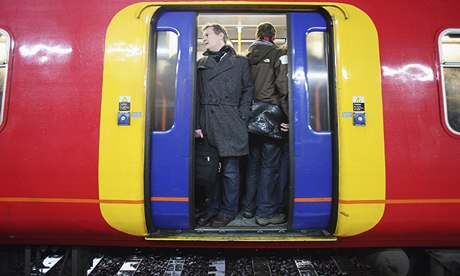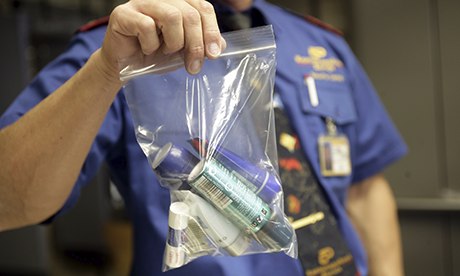Dressed in a grey hoodie and jeans, James, 24, looks like just another lost soul in the high street, shuttling between the six betting shops in an east coast seaside town. It's a weekday morning and if you catch up with him inside a bookmaker, you'll find him peering intently into the green glowing screen of an electronic
gambling machine – feeding in £200, "a score at a time".
But this is not a young gambler blowing his meagre wages. James is a drug dealer and his interest in the bookmakers – and the fixed-odds betting terminals (FOBTs) in each shop – is all about laundering money. "That's what turns dirty money clean," he says. Dealers feed their drug money through the machines, losing a little and then cashing out with the vast majority of their stake, James says. They can then collect a printed ticket showing they have gambled that day – meaning that if stopped by police, they can answer questions about why an apparently unemployed young man carries hundreds of pounds in rolled-up cash.
The FOBTs are probably the single most profitable pieces of property in the town centre's shabby pedestrian precinct. Each machine, according to industry figures, grosses about £900 a week. The 24 FOBTs within a few minutes' walk are worth an estimated £1m a year in profits to the betting industry.
The terminals arrived in Britain in 2001 and were lightly regulated from the outset. Punters in bookmakers found that they could bet £100 every 20 seconds on roulette. The temptation of high-speed, high-stake casino games in the high street proved irresistible: there are now 33,345 FOBTs in the UK.
However, several high-profile cases have exposed a seamier side to the rise of the machines. Earlier this month the Gambling Commission, the industry regulator,
finedCoral bookmakers £90,000 in profits it made from one drug dealer who had laundered almost £1m in its shops. Last month the industry regulator also publicly admitted what has long been privately acknowledged:
FOBTs present a "high inherent money-laundering risk". In a letter to the industry trade association, the commission warned about "a retail betting model that includes high volumes of cash transactions, particularly where this includes low individual spend and a high level of anonymity... especially where that model also offers (FOBTs)."
What the machines provide is the chance for criminals to convert quickly large sums of money from the real world into virtual cash that can later be converted back into the real thing. There is little official research into the scale and extent of such operations. The 2005 Gambling Act, which regulates the terminals, says one of its primary objectives is "preventing gambling from being a source of
crime or disorder, being associated with crime or disorder or being used to support crime".
However, it has long been obvious to the public that criminals can convert their loot into a clean win on an electronic roulette table. Surveys for the commission show that 40% of the public regularly identify gambling with criminal activity. The industry regulator found one in 14 respondents associated money laundering with gambling.
The Guardian persuaded a number of drug dealers to talk about their criminal pursuits. What was remarkable was that they saw FOBTs as both a nuisance and necessary, trapping "weaker" people into addiction while allowing the "strong" to prosper. All exchanged tips with fellow dealers on the best ways to launder money; all were surprisingly frank about their methods.
James's strategy is simple: £20 on black, £20 on red and £2 on zero. A press of a button and the wheel spins before the ball lands on red. That's a loss of £2. The money placed on the zero is the only risk James is taking with his cash. If the ball does land on zero, he wins £72.
With no horses to run or dealer to shuffle and just the 20-second spin of an electronic roulette wheel to wait for, it takes a little over a minute for this drug dealer to cash out. James says he knows that unless he gambles at least 40% of the float money he has put in the machine, an alert will pop up on the staff computer warning them of suspicious activity. So he methodically places the same bet to make sure that he has wagered enough.
To ensure that his winnings are not an unlikely round number, he loses some more money on the one-armed bandit. Leaving the tea brought over by the shop manager to go cold, James wanders over to the counter to collect his winnings in the form of a receipt – transforming the money he made from cocaine into apparent gambling winnings. He has lost a little more than £10. "You have to make it realistic," he says. "Bookies get nervous if you come in and just lose the same amount every day. So I vary it a little."
Drug dealers say the reason fixed-odds betting terminals are used is precisely because they are so lightly policed. James is careful not to visit the same shops in a pattern. Handily there are 15 betting shops in the town within walking distance of the main bus routes that snake through the suburbs and along the Thames estuary. "Smart dealers don't drive around here. You are more likely to be stopped by police driving around late at night doing deliveries than if you are taking a bus somewhere into town."
Then there are favoured bookies. Ladbrokes, says James, is useful because you can transfer winnings in the shop to an online gaming account. In William Hill's you can ask for your winnings to be credited directly to your debit card, with the cash landing up in your bank the same day. "Look at my account and I am a very successful punter," he says.
The economics of drug dealing make it cost-effective to pay 5% to 10% to betting shops to launder the illicit profits. James claims to have "about 100K" in his bank account. He sells about 56g (2oz) of ordinary cocaine a week and another 28g of a purer, more expensive version. "Normal customers like teachers, doctors they get the ordinary stuff. The cleaner gear is for the City boys."
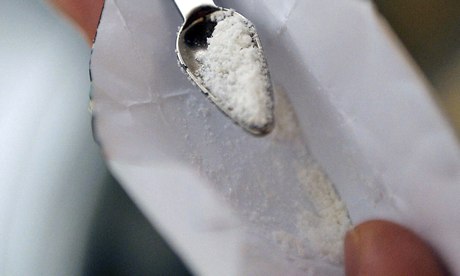 Selling cocaine in 0.8g wraps, James, a dealer, says he turns over about £5,500 of drugs – of which half is profit. Photograph: Andy Rain/EPA
Selling cocaine in 0.8g wraps, James, a dealer, says he turns over about £5,500 of drugs – of which half is profit. Photograph: Andy Rain/EPA
James left school at 16 and worked in shops and restaurants before ending up in the City of London. "That's where I saw people using coke and I was asked if I could get some. I knew some people and I did. Never looked back. How long would it have taken to save £100,000 if I just continued doing admin in a bank?"
Selling cocaine in 0.8g wraps, in a week James turns over about £5,500 of
drugs, of which half is profit. "I buy it on tick so you end up carrying a lot of money around. The trade is run by Albanians around here, so it's best to have cash ready if you need to pay it back in a hurry."
Almost all his money is laundered via FOBTs. James calculates he is worth £15,000 a year to the betting industry. "Valued customer," he grins. "I'd say there were about half a dozen of us [dealers] around here using machines. We swap tips – where to go, least crowded, staff not bothered, that sort of thing. You don't want to be recognised too many times."
In opening up to the Guardian, James says there is a risk that bookmakers in the coastal town will tighten up on who enters and who leaves. "Sure, they could stop us, but in the end they want the money.We can hang back for a bit and go somewhere else. Pretty soon they will relax and welcome us all back."
Bookmakers essentially regulate themselves: deciding whether to bar problem gamblers, call the police over violent behaviour or report crime. As the machines contributed £1.4bn to its bottom line last year, there have been suspicions that the industry has played down the shadier side of the terminals.
Adrian Parkinson, a former regional machines manager at the Tote, now with the
Campaign for Fairer Gambling, said: "Money laundering on FOBTs has been a problem since their introduction. Whether it's cleaning notes from the proceeds of crime or drug dealers legitimising profits, it is well known in the industry that it goes on.
"I raised the issue some years ago at the Tote after being swamped with incidents of money laundering following a series of armed robberies but it's still going on."
Even worse, Parkinson says, the technology is outpacing the law. He says by the end of the year, customers in Coral will be able to transfer any FOBT winnings to their online account. "The staff won't be able to intervene, whatever their suspicions. The industry is riding rough shod over the licensing objectives. Keeping crime out of gambling has to take precedent over profit."
The Association of British Bookmakers said the industry complied fully with the law. William Hill said it had "robust systems" to meet its regulatory obligations. In a statement, Ladbrokes said: "Any criminals attempting to launder large sums are placing themselves at high risk of detection as they will be on CCTV and staff are trained to spot suspicious behaviour. Given most stakes in shops are small, any large transactions are easily recognisable. Any attempt to transfer money to online accounts will require identity verification at account opening or first transactions which in conjunction with CCTV would be an excellent source of evidence for the police."
The media have helped to cement the place of gambling in the national psyche. Advertising during televised football matches exhorts audiences to have a flutter. Electronic gambling has found a younger audience through online role-playing games such as World of Warcraft, in which players have been able to set up virtual casinos. This year the United Nations Office on Drugs and Crime
warned that such games were being used by organised crime to launder cash.
Also helping to rehabilitate gambling is a new range of interactive TV programming. Late-night shows such as ITV's Jackpot247 – in which television viewers place bets online or over the phone, playing along to a live presenter-hosted roulette show – repolish gambling's image by treating electronic betting as a form of mainstream entertainment.
This shift in the marketing of electronic gambling has taken place as suspicions emerge that the industry has been targeting poor people. Last December, in a paper for the Journal of Gambling Studies, Heather Wardle, a former project director of the British Gambling Prevalence Survey, warned that gambling machines were more likely to be found in areas of high socioeconomic deprivation. Earlier this year,
the Guardian revealed that in the 50 parliamentary constituencies with the highest numbers of unemployed people, punters visited 1,251 betting shops and wagered an astonishing £5.6bn through 4,454 fixed-odds betting terminals.
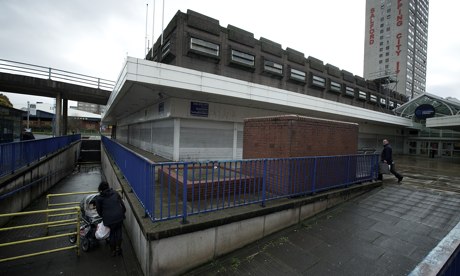 Salford has 72 people chasing each vacancy. It was the only part of Greater Manchester which last year recorded a rise in numbers on jobseeker's allowance. Photograph: Christopher Thomond for the Guardian
Salford has 72 people chasing each vacancy. It was the only part of Greater Manchester which last year recorded a rise in numbers on jobseeker's allowance. Photograph: Christopher Thomond for the Guardian
The presence of these machines appears to have a distorting effect on these moribund local economies. In a pub near Salford's Duchy estate, close to where rioting took place in 2011, two young men nursed pints of soft drink and explained how a vortex of soft drug sales, payday lenders and betting shops kept the local economy afloat. Salford has 72 people chasing each vacancy. It was the only part of Greater Manchester which last year recorded a rise in numbers on jobseeker's allowance (JSA).
Unemployed Jake, 28, sells marijuana on the local streets and smokes some of the profit. He recoups any losses by gambling and taking out loans at payday lenders. He points out the brown shopping arcade in Salford lined with bookmakers and loan companies. "It's the only thriving industry around here," he says.
"There are six bookmakers, one more is on its way, and five loan shops. Even if you are on JSA you can borrow money from Speedy Cash. It's the main business around here.Take dole, turn it into weed, sell them, take your profits and put them into the machines. If you win, you are quids in. If you lose, you get cash from the money shops to cover your losses. Back to dole and buying drugs. There's nothing else around here to do."
The drug dealer admits that he is "a bit" addicted to gambling, comparing the thrill of betting on the electronic spin of a roulette wheel to the rapid highs and lows of drugs. "You get a buzz. Which is why you might lose £16 or £1,600 and not notice until it's too late. I've done both."
The spread of betting shops in this part of the north-west is astonishing. Manchester city centre has 26. A few miles away in deprived Cheetham Hill, dubbed the "Bronx of Britain" for gang violence, there are four bookies in the high street, with another scheduled.Such bunching could be linked to the fact that bookmakers are limited to four machines a shop. As the machines are hugely lucrative the betting industry has bypassed the restriction by opening branches in high streets – "clustering" in poorer areas.
A betting shop manager in Greater Manchester, who agreed to be interviewed anonymously, said the FOBTs in Cheetham Hill easily earned £10,000 a week, four times the over-the-counter trade, and that local mobsters gambled heavily. "We get punters who lose big time on the FOBTs, punch them, chuck them to the ground. Smash them. We tell staff to play it cool. Don't call police. We don't want to arouse suspicions. It's madness. We employ young mothers in those shops.
"You have people laundering money every day with cash from robberies and drugs. Do you know that dyed notes from bank robberies can be submitted to the Bank of England and the company gets reimbursed? Staff know what pays their wages. They stay quiet."
